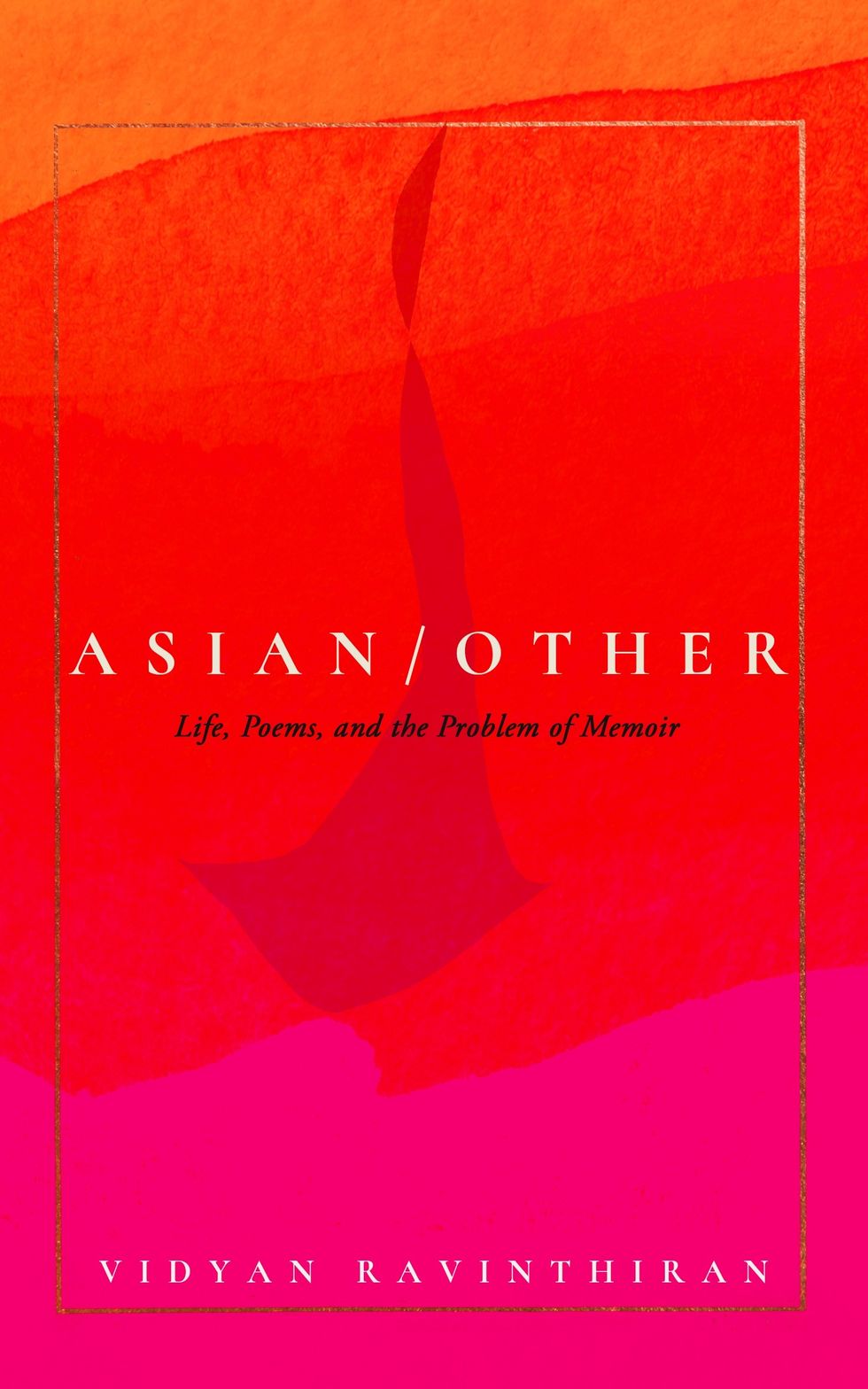VIDYAN RAVINTHIRAN first connected to the power of words through English classics he found on the bookshelves. This deep fascination inspired him to become a writer, eventually leading to poetry and book writing.
His most profound work is Asian/Other: Life, Poems, and the Problem of Memoir, which will be published next Thursday (16). The Leeds-born author has drawn from various life experiences, including growing up as the child of Sri Lankan Tamils, and now teaching at Harvard University. Through this compelling hybrid memoir, he explores themes such as racism, resilience, inter-generational trauma, parenting during the pandemic in an autism family, living with a speech impediment, and the invisibility of south Asians.
Eastern Eye spoke to the poet and literary critic about his journey, new book, OCD, and inspirations.
Tell us about your new book Asian/ Other: Life, Poems, and the Problem of Memoir.
Asian/Other is a sort of memoir – or anti-memoir – that speaks from the heart about growing up brown in the north of England and feeling connected to Sri Lanka and its traumas. It addresses my struggles with mental health, moving to the United States, where being south Asian feels entirely different, and reflecting on difference after my son’s autism diagnosis. I call it an ‘anti-memoir’ because memoirs, autofiction, and similar forms have always felt like a white person’s domain. For those of us who are minoritised, our experience of the world often defies straightforward narratives.
What led you towards poetry?
I teach poetry at Harvard and have written three books of poems. I understand that for many, poetry seems like a coded language teachers use to humiliate students. This alienates those who might enjoy it. I hope to change that by showing how poems – whether by people like us or by those from different times and places – can help us live better.
What do you most love about poetry?
I grew up with a speech impediment, and correcting it involved memorising poems. This made me fascinated by the way sounds fit together, or what Seamus Heaney called the ‘mouthmusic’ of language. I love the sound, rhythm, and imagery of poetry. For me, poetry is also cognitive – a way of thinking about the world.

Did you learn anything new about yourself while writing this book?
Good question! While writing about rumination (obsessive worrying) and proofreading that chapter, I realised I have OCD, which is now diagnosed and being treated. OCD is often misunderstood – it isn’t about being obsessively neat or judging others. It’s a compulsion.
Tell us about that.
OCD creates terrifying thought-loops, compelling you to over-analyse everything – your actions, behaviours, and others’ feelings – seeking absolute certainty. It’s like having a fly in your mind you must swat or free, but doing so creates more flies. I’m now writing poems about OCD to better understand it myself.
How important was it for you to make the book relatable?
Although I’m an academic, I’ve also written journalism, so I aim for lively sentences, not restricted by scholarly norms. These days, we are all acutely aware of echo chambers, siloed discourse, and insular bubbles – and the pressing need to engage with people different from ourselves. While I aimed to reach a diverse range of readers, I remain cautious about the term ‘relatable.’
Why is that?
The pressure to be relatable often makes south Asians shorten their names or smile through insults to fit in. This desire can stop us from addressing racism directly. I believe it’s crucial for some of us to stop striving for relatability.
Your book connects people from diverse backgrounds. Do you have a favourite passage?
The chapter about my son, Frank, is especially meaningful. We named him after the TV detective Columbo, which I often misspell as Colombo.
How much do the early positive reviews mean to you?
The praise from peers on the book’s cover means a lot, as I deeply admire them. However, I think south Asians must be ready to be disliked, including by other Asians. We often shrink ourselves to fit in, as though a bad review is the worst thing imaginable. My mother, my hero, is fearless in this regard – she’s like Romesh Ranganathan’s mum but squared or cubed even.
What kind of books do you enjoy reading usually?
As an academic, much of my reading is dictated by the demands of work and teaching. However, I also read a great deal of fiction and poetry. The last book I read was Tony Tulathimutte’s Rejection, which I found hilarious, cutting, and hearteningly savage in its critique of internet, identity, and modern culture.
What inspires you as a writer?
I often write to make sense of things for myself. Writing helps me discover what I want to say.
What can we expect next from you?
A book on poetry and opinion will be published by Cambridge UP, and Avidya, my next poetry collection, will be released by Bloodaxe.
Why should readers consider picking up your new book?
It’s okay if you don’t, but I’m grateful if you do. Amid the world’s horrors and distractions, if we can meet – whether in person or through the book – it would mean a lot to me and make the effort worthwhile




